A preventive U.S. attack in Korea, especially if it were undertaken unilaterally by Washington and even more so if it led to general war, would change everything, write Michael O’Hanlon and James Kirchick. The entire logic of U.S. extended deterrence and alliance solidarity will be put into serious doubt. This post originally appeared in The Hill.
Is President Trump really considering a preventive military action of some kind after the Olympic season is over in Korea?
National Security Advisor H.R. McMaster has just denied that possibility, telling a bipartisan group of senators last week that the administration has no plans to carry out a so-called “bloody nose” attack against North Korea to constrain its nuclear weapons or long-range missile programs.
But the idea has been circulating too long to be put to rest quite that easily, and President Trump has just kept it alive at the CPAC conference on Friday in Washington by stating that if sanctions against North Korea fail, we may have to consider “Phase 2.”
Some of the options Trump might consider—shooting down future North Korean missile launches, destroying uranium enrichment centrifuges, enforcing U.N. sanctions with forcible naval action near North Korean coasts—have at least a superficial allure.
Parts of the administration also may think a “bloody nose” attack would leave Pyongyang with few good retaliatory options, making it likely that Kim Jong-un would simply accept his punishment and then behave with more restraint going forward.
This possible strategy is dubious on many grounds. But as others have observed, the central reason is this: Militarily, even if it could slow North Korea’s ability to threaten North America with long-range, nuclear-tipped missiles, it could not eliminate Kim’s existing arsenal of perhaps dozens of nuclear bombs plus a suite of shorter-range missiles that could probably carry them to points throughout the region.
If Kim did decide to retaliate, an action-reaction spiral could ensue.
If Kim did decide to retaliate, an action-reaction spiral could ensue that might lead to nuclear attacks against South Korea or Japan, whether or not that was Kim’s initial intent. Wars, once started, tend to escalate. The imperfect missile defenses in place in Korea and Japan might not be enough to intercept all that was incoming. Nuclear detonations over cities could well occur.
Here is the additional important point that has not yet been discussed: Were such a scenario to happen, Trump would have put America first in a way that fundamentally repudiates decades of American foreign policy.
To prevent even a hypothetical threat against the U.S. homeland (which we might have other means to defend against), he would have dramatically increased the risks of catastrophe on the territories of two treaty allies. In effect, he might well have traded Seoul or Sapporo for Seattle.
He would have reduced the danger to millions of Americans through an action that risked the incineration of millions of Koreans and Japanese (and the hundreds of thousands of Americans living in those two countries—including 70,000 military personnel).
Our purpose here is not to suggest that President Trump is indeed so callous and indifferent to the fate of so many U.S. allies. However, Trump also says that he wants to solve the Korea problem, and that raises the risk of brash, preventive military action.
With such a preventive strike, particularly one not blessed in Seoul, Trump would be turning more than a half-century of very successful U.S. foreign policy on its head. Throughout the Cold War, the United States strove to convince allies, and even more importantly the Soviet Union, that we would treat an attack on a NATO or east Asian ally as tantamount to an attack on the United States.
Because the lesson of the world wars was that the fate of western Europe and the western Pacific would ultimately engage America’s vital interests, U.S. foreign policy created a web of alliances in a forward-defense strategy.
The logic of this concept required us to persuade others of a somewhat unnatural idea—that Americans would be willing to die for their allies even before the United States itself came under attack.
What came next, once these basic principles were developed in the late 1940s and early 1950s, is the stuff of history. The United States wrote treaties undergirding NATO and its bilateral alliances promising to consider an attack on allied territory as an attack on the United States.
It deployed hundreds of thousands of troops in Europe and tens of thousands in Korea and Japan so that any attack on these countries would immediately kill not just allied personnel and civilians but American GIs.
We stationed nuclear weapons in these same regions so that it would be clear that no one could overrun our allies without the prompt risk of nuclear retaliation—even if that risked putting us on a slippery slope to general nuclear war.
And it worked. Somehow, the unthinkable became believable. Not primarily because Americans are altruistic, but because we realized that the security of Europe and east Asia is ultimately essential to our own safety.
Not only did this strategy prevent the Cold War from becoming World War III, but it reduced the risks of nuclear proliferation since allies trusted the U.S. nuclear umbrella and realized they did not need their own.
It kept other countries allied with us, even when we made mistakes in the conduct of the Vietnam and Iraq wars and other operations, because at least they trusted our motives and our ability to learn from our mistakes.
A preventive U.S. attack in Korea, especially if it were undertaken unilaterally by Washington and even more so if it led to general war, would change everything. The entire logic of U.S. extended deterrence and alliance solidarity will be put into serious doubt.
Because such an attack might have had the blessing, or at least the operational support, of key respected U.S. military leaders, it could also outlast Trump’s presidency in its strategic effects.
Other countries might never look at the United States quite the same way again. The logic of an alliance system that, for all its flaws, still unites some two-thirds of world GDP and world military spending in common cause under loose American leadership, might very well crumble away for good.
As high as the stakes may be in Korea itself, far more is at risk if we take it upon ourselves to decide to launch preventive attacks on the Korean peninsula.
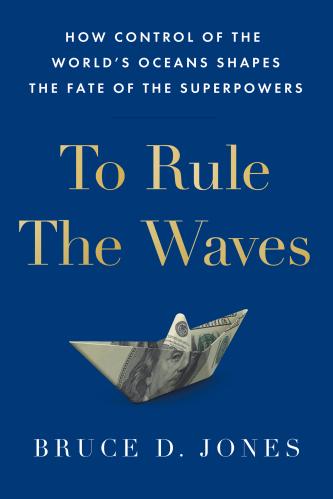
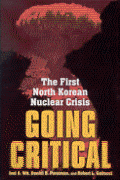

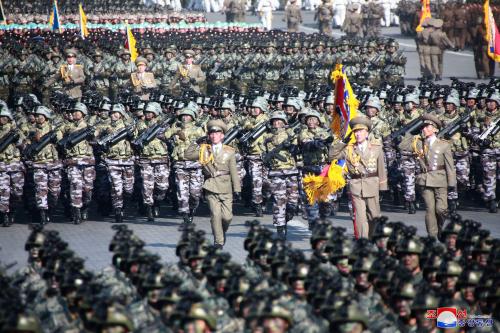
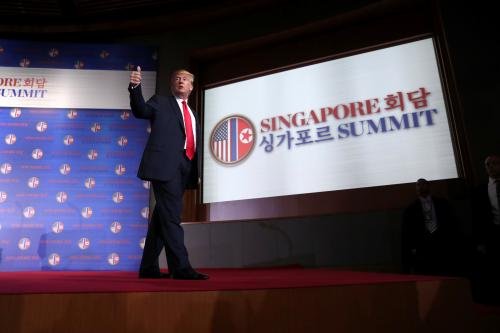
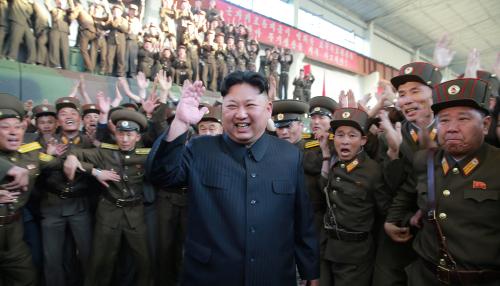


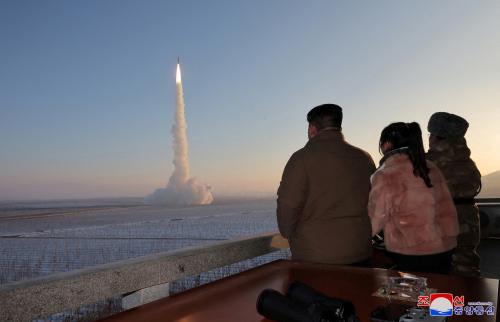
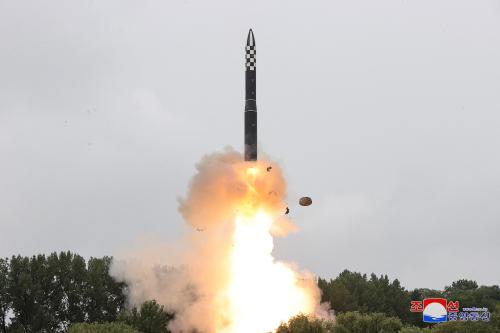
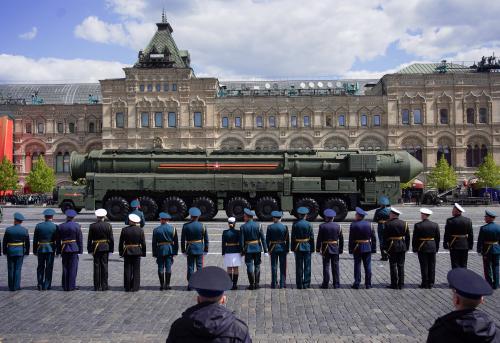
Commentary
A “bloody nose” attack in Korea would have lasting consequences
February 26, 2018